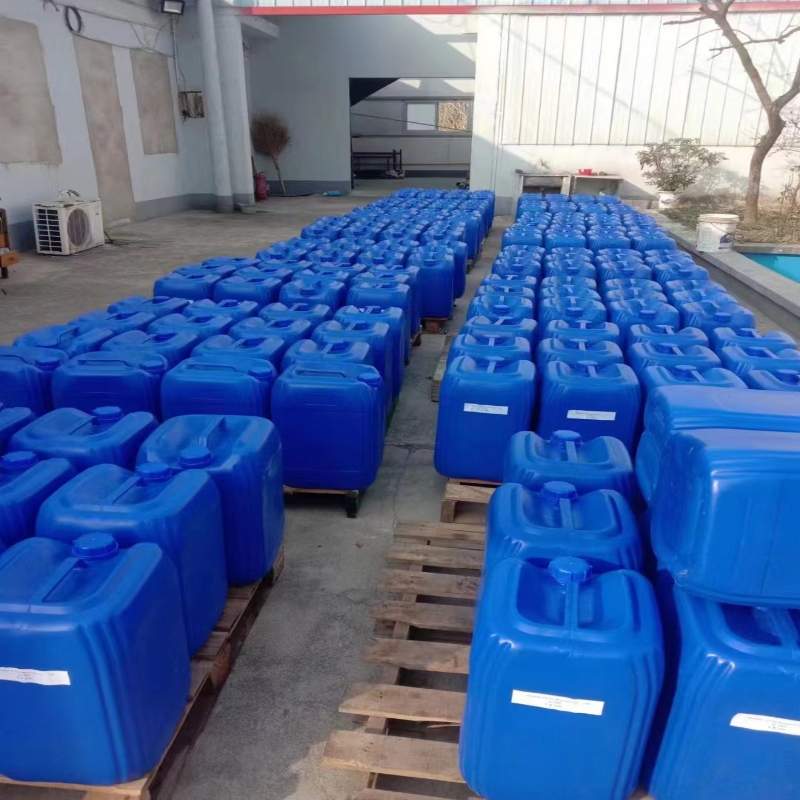-
Categories
-
Pharmaceutical Intermediates
-
Active Pharmaceutical Ingredients
-
Food Additives
- Industrial Coatings
- Agrochemicals
- Dyes and Pigments
- Surfactant
- Flavors and Fragrances
- Chemical Reagents
- Catalyst and Auxiliary
- Natural Products
- Inorganic Chemistry
-
Organic Chemistry
-
Biochemical Engineering
- Analytical Chemistry
-
Cosmetic Ingredient
- Water Treatment Chemical
-
Pharmaceutical Intermediates
Promotion
ECHEMI Mall
Wholesale
Weekly Price
Exhibition
News
-
Trade Service
At this year's COP27, the Pathway Alliance, a group of Canada's largest oil sands producers, showcased its carbon capture utilization and storage (CCUS) technology in a pavilion link at the Sharm el-Sheikh venue in Egypt, and Abu Dhabi National Oil Company (ADNOC) showcased the first commercial-scale CCUS facility
in the Middle East.
CCUS has become an important technology
for the energy industry to achieve net-zero emission targets.
Most oil company chiefs expressed support for the goals
set out in the Paris agreement.
BP CEO Bernard Looney has vowed to reshape the company's future path as the world needs to reach net zero as soon as possible
.
Shell and Total Energy have pledged to become net-zero energy companies
by 2050.
In order to achieve climate goals and protect the environment, it is unrealistic to immediately stop investing in fossil fuels such as oil and gas, especially in countries and regions that remain in
energy poverty.
Oil companies should aim to supply oil and gas products
in a more responsible, environmentally friendly and sustainable manner.
To achieve net-zero carbon targets, major oil companies are already investing
in renewable or low-carbon energy sources.
The world's largest wind power plant built by Equinor is already generating electricity off the coast of Norway, powering
its North Sea oil and gas production.
Total plans to invest $500 million annually in clean energy technologies, a figure that accounts for about 3% of the company's total capital expenditure, and plans to increase it to 20% over the next 20 years, with the goal of becoming a global integrated leader in solar energy
.
PetroChina continues to increase the supply of natural gas and other clean energy to effectively control greenhouse gas emissions
.
Oil companies urgently need to combine
CO2 emissions, global climate goals, and corporate sustainability.
The carbon circular economy (CCE) can provide a holistic, flexible and pragmatic framework
for companies to plan their climate contribution goals.
The carbon cycle is built on the concept of a circular economy and relies on CCUS, with the goal of achieving net-zero emissions by reducing and offsetting carbon dioxide and other greenhouse gas emissions
from the atmosphere.
The carbon cycle is concerned not only with carbon emissions and carbon capture, but also with the recycling and utilization
of carbon.
The carbon circular economy requires mature technology and a large amount of financial support, and energy companies can play an important role
in the field of carbon circular economy.
Capturing and sequestering carbon dioxide from production processes and the atmosphere is the main way to mitigate the greenhouse effect, and oil companies can also use the captured carbon dioxide to enhance oil recovery and produce "net zero oil.
"
Occidental Petroleum and Canadian startup Carbon Engineering Ltd.
, in partnership, are building a carbon capture plant to meet climate goals
through carbon capture and storage.
Occidental says carbon capture and storage is more dependent on advances in
technology than fossil fuel refining and exploitation.
Occidental also plans to produce and sell "net-zero oil"
by injecting more carbon dioxide into reservoirs than the process of extracting and burning oil.
Saudi Aramco aims to become a global leader in the carbon cycle, supporting Saudi Arabia in achieving net-zero emissions by
2060.
The Xinjiang CCUS Center, led by PetroChina, has become one of
the first five CCUS industry promotion centers deployed globally by the Oil and Gas Climate Initiative.
On November 4, Sinopec, Shell, Baosteel and BASF signed a memorandum of understanding to jointly launch China's first open 10-million-ton CCUS project
in East China.
According to Fortune Business Insights, the global CCUS market was valued at $1.
96 billion in 2020 and will grow at an annual rate of 19.
5% to reach $7 billion
by 2028.
This growth is mainly driven by the deployment of large-scale production facilities, the commercialization of technologies through collaboration, and the growing need to reduce emissions
.
The carbon circular economy has been recognized by G20 members in 2020 and is expected to be implemented
soon by large oil companies in more countries.







